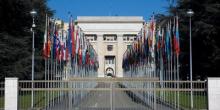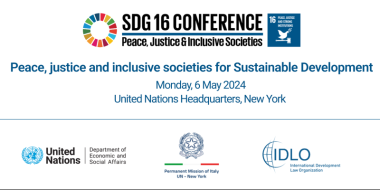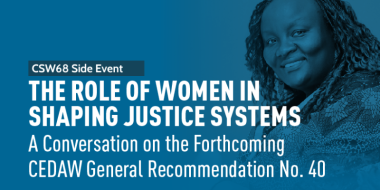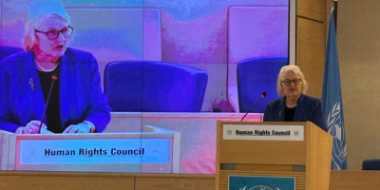GQUAL: The Case for Gender Parity
"Experience shows that there can be no gender equality unless women can access justice and dispense justice," IDLO Director of External Relations Judit Arenas has said at the launch of the GQUAL campaign for gender parity in international bodies.














